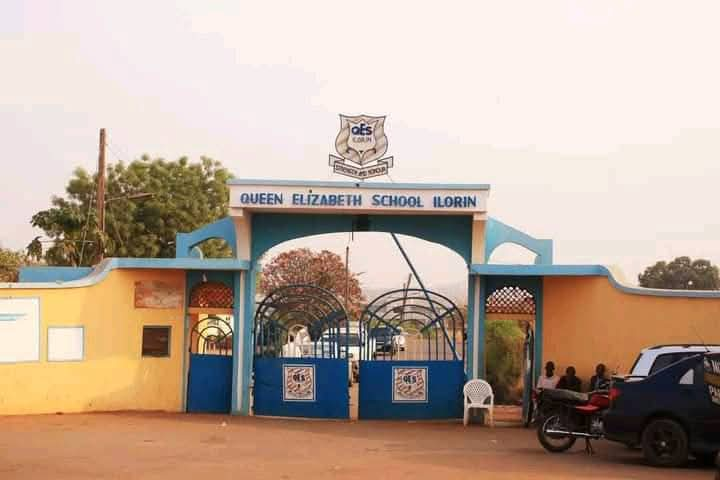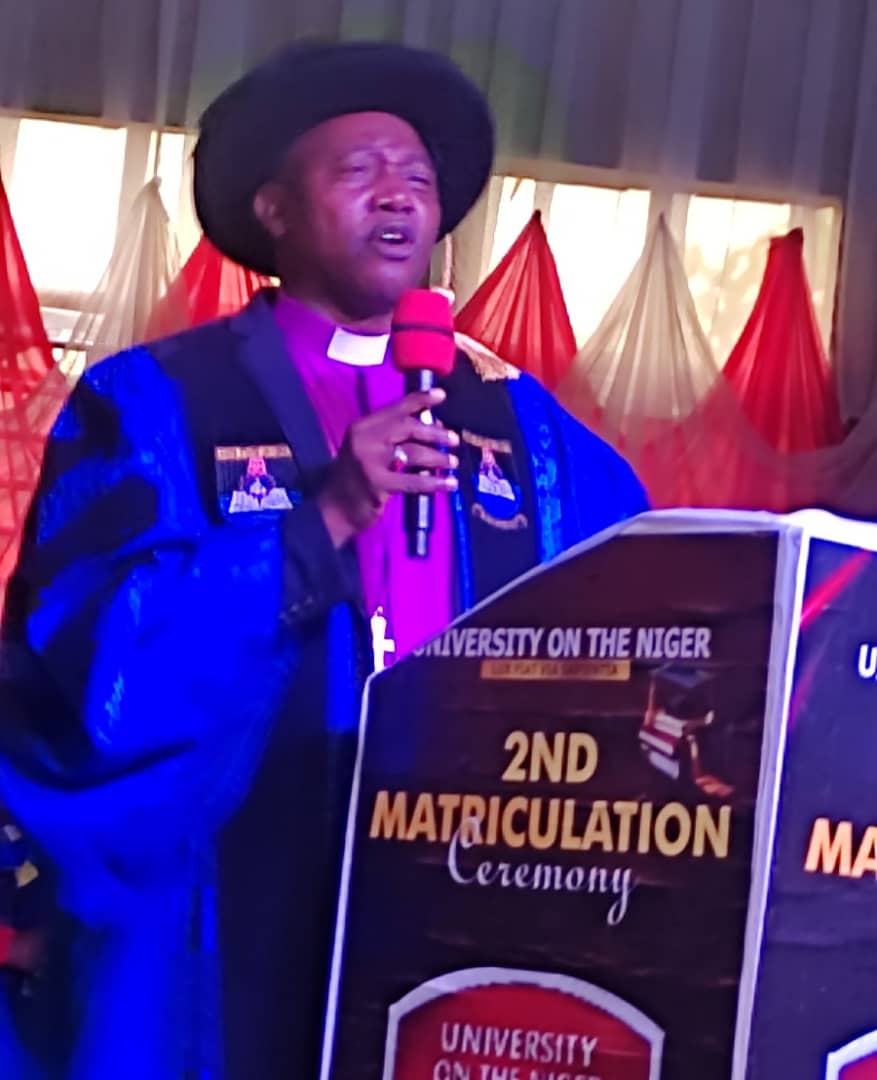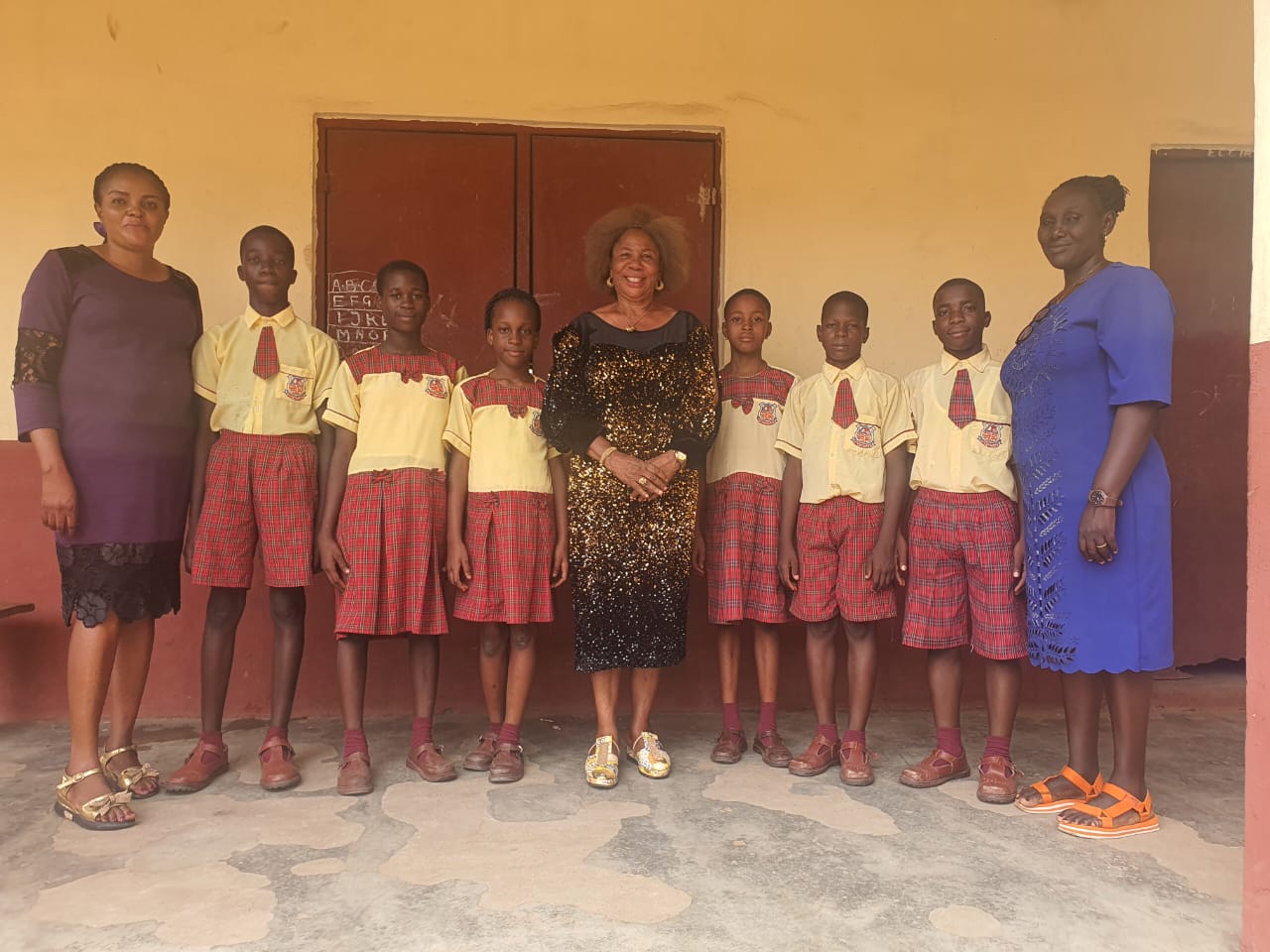By Rasheedat Iliyas
Less than a month after an investigative report exposed a decade-long exclusion of visually impaired girls from secondary school in Kwara State, the government announced the approval of Queen Elizabeth Secondary School, Ilorin, for their immediate admission.
The new policy, which came with free education, feeding, and accommodation, sparked jubilation among affected students, parents, and disability advocates who had fought for years to end the injustice.
For girls like Agnes Daniel, the announcement marked the end of a ten-year nightmare. Agnes, who completed her primary education in 2016, could not proceed to secondary school because the only approved government school for visually impaired students, Government High School, Adeita, lacked hostel facilities and was too far from her home in Tanke, Ilorin.
“Haaa, I was so glad when I heard the news. I’m already packing my bag. I really appreciate it. May God bless the Governor and the entire Harmony FM,” Agnes said, laughing with relief.
She was not alone. Bushra Abas, Muibat Babanloma, and Jariat Mohamonu—all previously stranded at home—were equally excited about returning to school.
Bushra, the only female visually impaired student at Adeita, asked whether she should remain there or move to Queen Elizabeth School. Jariat eagerly wanted to know the resumption date, while Muibat giggled as she declared her readiness.
Government’s Position
On September 18, 2025, the Commissioner for Education and Human Capital Development, Dr. Lawal Olohungbebe, confirmed Governor AbdulRahman AbdulRazaq’s approval in a press statement.
He explained that the new policy “reflects government’s determination to reduce out-of-school children across the state” and aligns with the United Nations’ Sustainable Development Goal Four, which calls for inclusive and equitable quality education.
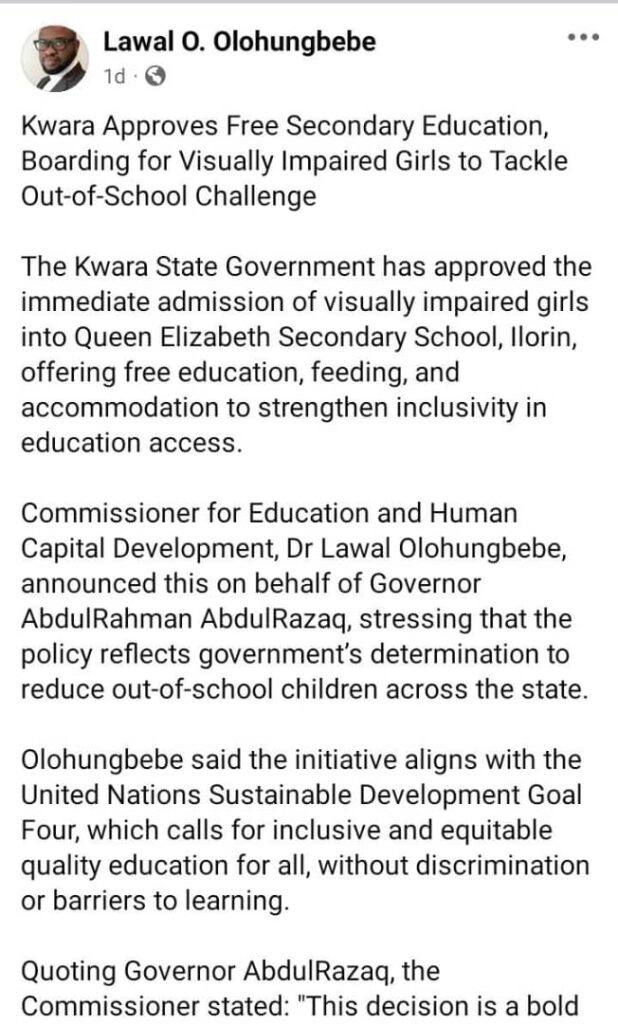
Quoting the governor, the Commissioner wrote: “Every child, regardless of physical challenge, deserves quality education and opportunity. This decision is a bold step to guarantee no child is left behind in Kwara.”
The statement, widely shared on social media, generated hundreds of reactions, with many praising the administration for responding swiftly to the concerns raised in the earlier report.
Just a day earlier, the governor had donated two 32-seater coaster buses to the Kwara State School for Special Needs, Oyun, and Queen Elizabeth Secondary School, Ilorin—demonstrating a broader commitment to inclusion.
Families of the affected girls welcomed the development with tears of joy. Grandma Bushra and Mama Muibat expressed gratitude: “It’s your report that helped us. Thank you very much.”
For many parents, the relief was not just about access to education but also about the assurance of free accommodation and feeding, which had long been stumbling blocks.
Queen Elizabeth Secondary School, Ilorin
Established in 1956 by the Northern Regional Government and officially opened by Queen Elizabeth II in 1957, the school has a rich history as an all-girls institution. It became part of Kwara State’s education system in 1967 and has served students from across Nigeria.
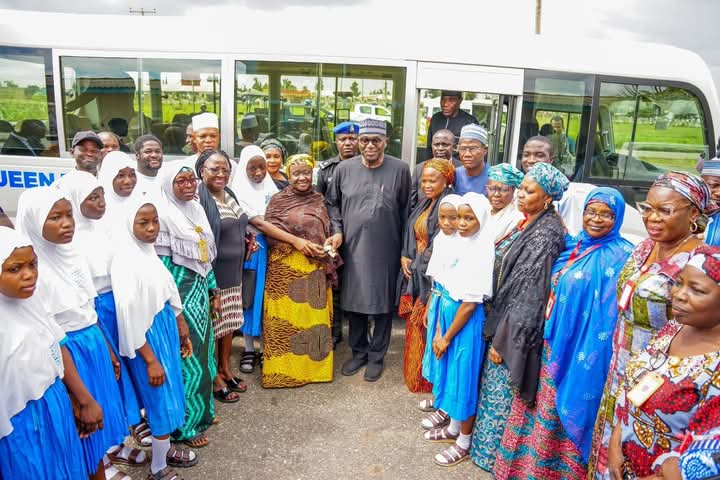
During the recent donation of the coaster bus, Governor AbdulRazaq also promised to construct a perimeter fence around the school as part of security upgrades—another sign of renewed investment in its future.
The story behind the change
The landmark decision was triggered by an investigative report published on Core Truth Online on August 29, 2025. The report revealed that while visually impaired boys endured tough conditions at Adeita, girls were effectively shut out of secondary education for ten years.
The hostel originally built for them had been reallocated to staff members, leaving the girls stranded. Many either stayed at home, abandoned education, or moved to other states in search of opportunities.
The investigation, published under the Wole Soyinka Centre for Investigative Journalism’s Female Reporters Leadership Programme, generated widespread outrage and drew attention to the plight of the girls.
Voices of support
Civil society and disability rights advocates celebrated the government’s swift intervention. Ibrahim Abdullahi, President of the Muslim Media Watch Group of Nigeria, said:
“Government’s quick intervention demonstrates commitment to the yearnings of vulnerable people.”
The Nigeria Association for the Blind (NAB), Kwara State, described the approval as a historic victory. Its chairman, Akeem Lawal, said:
“This is indeed a fulfilled mission for the community of persons with disabilities.
“For more than ten years, many of our girls never believed this day would come. Some even fled to other states for education.”

Lawal added that NAB had already compiled the list of affected students and was working with government to integrate them into Queen Elizabeth School within the first term of the 2025/2026 session.
“Even those who are older than usual will be encouraged to return. We’ve been assured that they will resume in a matter of days,” he said.
Remaining challenges
While the government’s decision addressed critical barriers – education costs, accommodation, transportation, and feeding – stakeholders emphasized that the journey toward full inclusion was not complete.
Concerns remain about the shortage of qualified special education teachers, provision of learning aids such as Braille textbooks and assistive devices, and ensuring that public schools across Kwara adopt inclusive practices rather than isolating students with disabilities into a few institutions.
For Agnes and her peers, however, the priority is finally getting a fair chance at education. After a lost decade, their long-deferred dreams are back within reach.


